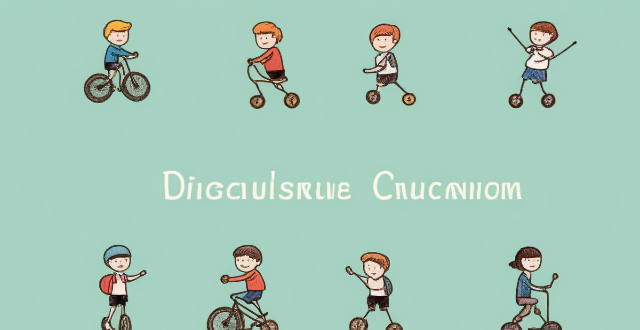The text discusses the role of sports education in promoting a lifelong passion for physical activity among children. It underscores the importance of making sports fun and enjoyable, offering choices, creating a supportive environment, improving fitness levels, building motor skills, developing sportsmanship, teaching teamwork, perseverance, discipline, and time management. The author emphasizes that sports education is essential for children's overall development and encourages prioritizing it in schools and communities to foster healthier, happier lives filled with lifelong love for physical activity.

The Role of Sports Education in Fostering a Lifelong Love of Physical Activity
Sports education plays a crucial role in developing a lifelong love of physical activity. It not only helps children to develop their physical abilities but also teaches them valuable life skills such as teamwork, perseverance, and discipline. In this article, we will discuss some ways in which sports education can foster a lifelong love of physical activity.
Importance of Fun and Enjoyment
1. Encouraging Participation: Sports education should focus on making physical activities fun and enjoyable for children. This can be achieved by incorporating games and other engaging activities into the curriculum. When children enjoy participating in sports, they are more likely to continue engaging in physical activities throughout their lives.
2. Providing Choices: Offering a variety of sports and activities allows children to explore different options and find the ones they enjoy the most. This helps them develop a passion for physical activity that will last a lifetime.
3. Creating a Supportive Environment: A positive and supportive environment is essential for fostering a love of physical activity. Teachers and coaches should encourage children to do their best while also emphasizing the importance of having fun and enjoying the process.
Development of Physical Abilities
1. Improving Fitness Levels: Sports education helps children improve their fitness levels, which is essential for maintaining good health throughout their lives. By participating in regular physical activities, children learn the importance of staying active and how it can benefit their overall well-being.
2. Building Motor Skills: Sports education helps children develop their motor skills, including coordination, balance, and agility. These skills are essential for participating in a wide range of physical activities and can help children feel more confident and capable when engaging in sports and exercise.
3. Developing Sportsmanship: Learning how to win and lose gracefully is an important aspect of sports education. Children who learn to display good sportsmanship are more likely to continue participating in physical activities throughout their lives, as they understand the importance of respecting others and enjoying the game itself.
Teaching Valuable Life Skills
1. Teamwork and Collaboration: Sports education teaches children the value of working together towards a common goal. This skill is not only useful in sports but also in many other aspects of life, such as school projects, workplace collaborations, and personal relationships.
2. Perseverance and Discipline: Participating in sports requires dedication, hard work, and perseverance. These qualities are essential for success both on and off the field. By learning these skills through sports education, children are better equipped to face challenges and overcome obstacles in all areas of their lives.
3. Time Management: Balancing academic responsibilities with extracurricular activities, including sports, teaches children valuable time management skills. These skills are crucial for success in college, careers, and personal life.
In conclusion, sports education plays a vital role in fostering a lifelong love of physical activity by making it fun and enjoyable, developing physical abilities, and teaching valuable life skills. By prioritizing sports education in schools and communities, we can help children lead healthier, happier lives filled with lifelong passion for physical activity.